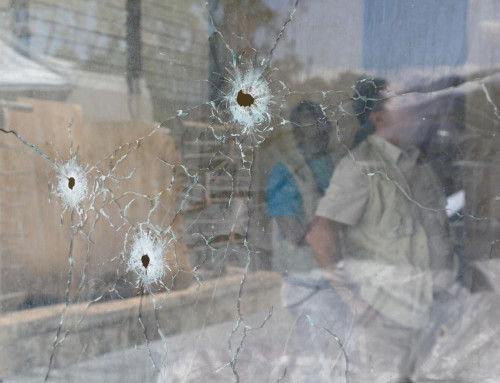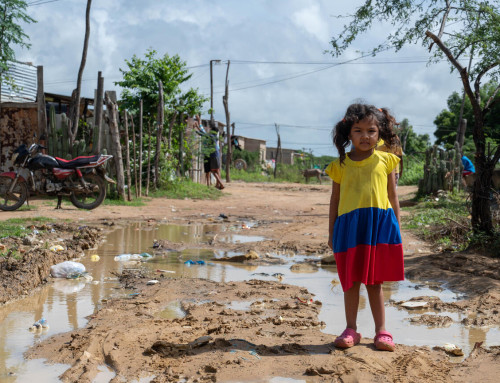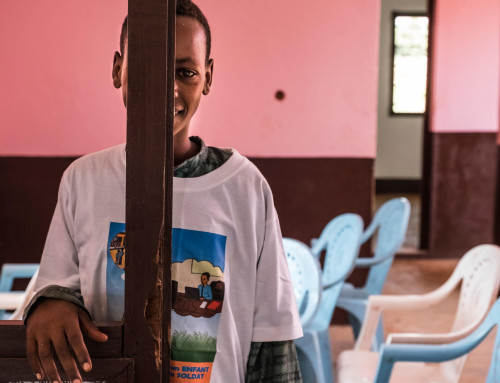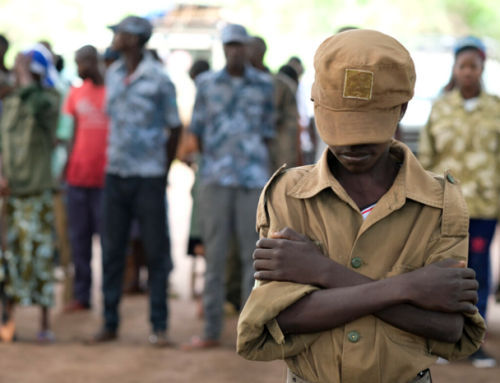Increasing insecurity in Mali’s northern and central regions, along with the slow implementation of the peace agreement, have created an environment ripe for grave child rights violations.
This is the conclusion of the second report of the Secretary-General on children and armed conflict in Mali, published today and covering the period from January 2014 to June 2017. The report documents how boys and girls have been recruited and used by armed groups, killed, maimed, victims of sexual violence, and other grave violations.
“I want to commend the Malian authorities for their commitment to improve the fate of the country’s boys and girls, despite a difficult and volatile security situation,” said Virginia Gamba, Special Representative of the Secretary-General for Children and Armed Conflict. “However, I encourage the Government to further strengthen the national legal framework by fully criminalizing the recruitment and use of children under the age of 18 and to ensure that boys and girls’ needs are taken into account in the implementation of disarmament, demobilization and reintegration programmes.”
Recruitment and use of children
During the reporting period, the recruitment and use of children was the most documented grave violation with 748 allegations received by the United Nations. Of those, the recruitment and use of 284 children, including 16 girls was verified, and all cases were attributed to armed groups.
The United Nations’ engagement to end and prevent grave violations against children led to the signing in March 2017 of an innovative Action Plan with the Coordination des Mouvements de l’Azawad (CMA), to end and prevent the recruitment and use of children and sexual violence against children. The Action Plan was signed by the entire CMA coalition, although only one of its party, the Mouvement National de Liberation de l’Azawad (MNLA), is listed in the annual report of the Secretary-General on children and armed conflict. Yet, the entire coalition has committed to the agreement with the United Nations, to prevent and put an end to violations committed by all of its members. A challenging security situation initially hampered progress in the implementation of the Action Plan, but in recent months, focal points were named and priority activities were identified for its implementation, including the screening of troops to identify associated children.
Attacks on schools and hospitals
There was a sustained rise in the number of attacks and threats of attacks against schools and their related protected personnel throughout the reporting period, including in formerly peaceful regions in the centre of the country, a trend that is continuing in 2018. “Back to School” campaigns and efforts to reopen schools have had a positive impact, but as of March 2018, 715 schools were still closed in conflict affected regions, depriving hundreds of thousands of students of their right to education.
“I commend Malian authorities for their recent endorsement of the Safe Schools declaration,” said Virginia Gamba. “Protecting schools is essential to turn the page on conflict.”
G5 Sahel Joint Force
The Special Representative concluded that following the establishment of the G5 Sahel joint force, the protection of children should be a priority in the conduct of military operations and that children captured during military operations should be considered primarily as victims and handed over to civilian child protection actors.
###
Read the report: http://undocs.org/en/s/2018/136
For additional information, please contact:
Fabienne Vinet/ Stephanie Tremblay, Communications Officer
Office of the Special Representative of the Secretary-General
for Children and Armed Conflict
+1-212-963-8285 (office)
+1-917-288-5791 (mobile)
tremblay@un.org, vinet@un.org
Follow us on Twitter and Facebook:
www.twitter.com/childreninwar
www.facebook.com/childrenandarmedconflict






